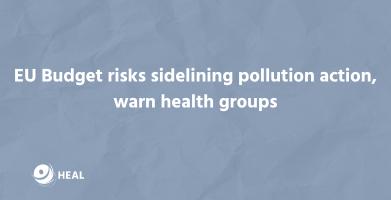In 2025, HEAL welcomed several new organisations into its international network of over 70 members committed to advancing health through environmental action. These new members bring valuable expertise in public health, environmental justice, and sustainable policy, further strengthening the capacity of the alliance to help face the challenges from biodiversity loss, pollution and climate change. Learn more about their missions and work below.
HEAL together, with the other EDC-Free Europe coalition campaign partners, are calling on the European Commission to urgently propose the non-renewal of two harmful pesticides—fenoxaprop-P-ethyl and fludioxonil—ahead of the upcoming EU Standing Committee on Plants, Animals, Food and Feed (SCoPAFF) meeting on 11-12 March 2025.
Both substances have been identified as endocrine disruptors by the European Food Safety Authority (EFSA), posing a serious risk to health. EFSA’s peer review found that:
- Fludioxonil disrupts the endocrine system in humans and wild mammals, causing delayed sexual maturation, reduced anogenital distance in males, and altered oestrus cycles in females.
- Fenoxaprop-P-ethyl was classified as an endocrine disruptor based on its effects on prostate, epididymis, and testicular weight.
These pesticides were originally approved until 2018, but their authorisation was extended until 2025. Allowing them to remain on the market despite this new evidence directly contradicts EU Regulation 1107/2009, which warrants the protection of public health and the environment under the precautionary principle.
Read the full letter here.
Notes:
EDC-Free Europe is a coalition of over 70 environmental, health, women’s, and consumer groups across Europe, united in concern over the health and environmental impacts of hormone disruptors: endocrine-disrupting chemicals (EDCs).



